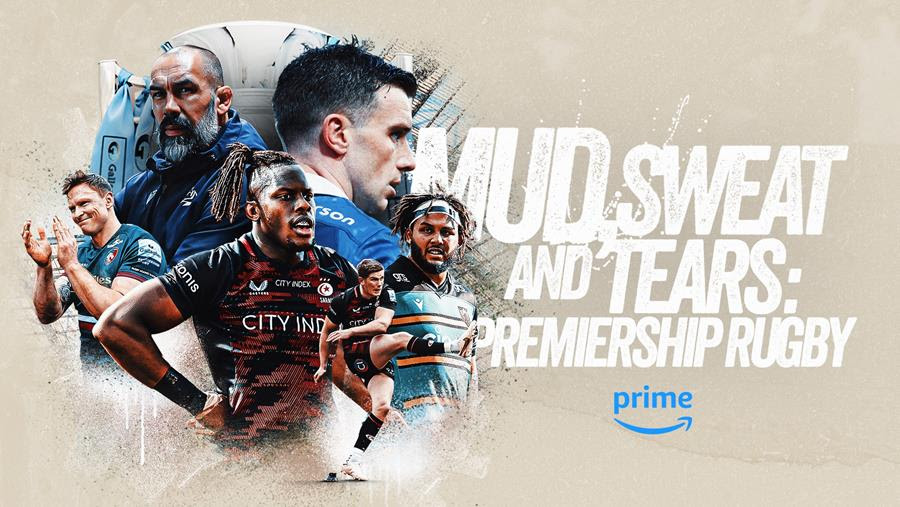“Premiership Rugby Has a Clear Game Plan”
September 14, 2023
iSportConnect’s Jay Stuart spoke with Simon Massie-Taylor, the Premiership Rugby CEO to know more about the plans of the organisation to boost Rugby’s popularity.
It can sound trite and wishful to say that a crisis sometimes makes things better than they were before, but in the case of the English Rugby Premiership that really might be the case. The rude shock of three out of 13 clubs (including one the best-known in Wasps) going bust in recent months has resulted in sharper strategic vision and one immediate and important positive ¬ a stronger connection between the league and the England team, which has always dominated audiences and commercial value.
Premiership Rugby enjoys a bit of serendipity in this regard because the 2023-24 season overlaps with the Rugby World Cup and the link between England and the league that the national team players come from will be hammered home during the big tournament (you could start to hear it in the commentary during England’s win over Argentina last Saturday).
Next season the 10-team Premiership is expecting to benefit from not having that overlap any longer, meaning the league will not have to compete with international matches at the gate or on TV, but the promotional support from the RFU will be if anything stronger.
Making the England relationship that much smoother is the experience that Simon Massie-Taylor, the Premiership CEO, brings from his previous role as the RFU’s head of commercial.
It might be argued that the seeds of the financial problems that we’ve seen date back to when rugby went professional in 1995, but covid was what really brought things to a head. “There was a lot of optimism pre-covid,” he said. “CVC had come in as an investor in us and The United Ruby Championship (the Gaelic equivalent) as well as the Six Nations, there were long-term deals in place and rugby was growing globally. Covid was crushing. At the RFU if you lost a single game, it was a catastrophe, and our clubs lost their entire schedules.”
That said, the underlying problems at Wasps, Worcester Warriors and London Irish went deeper. “No one at the league was aware of the extent of the problems,” Massie-Taylor said. “That’s why we have made financial transparency a cornerstone as we move forward. Financial discipline and transparency are absolute necessities.”
Faced with managing the insolvency of three clubs with historic brands, the league raised additional funds from CVC and the RFU and the investors in the clubs. The top priority now is attracting new investors to rugby. Massie-Taylor said: “We need to be less reliant on the current owners of the clubs and also bring through a new breed of investors – including strategic sports investors who might have other experience in sports.”
Basic ingredients for attracting investment are having a good growth story and a clear plan aligning rugby’s stakeholder and, most important, the promise of financial stability. Premiership Rugby will soon have an independent Financial Monitoring Panel (FMP). There are TV deals in place with TNT Sports and ITV (the main network will carry seven live games this season), and Gallagher remains the blue-chip title sponsor.
Player salaries have raised eyebrows in the past, despite the existence of a salary cap. The cap was reduced when covid hit but will go up next season. The guiding principle going ahead will be to link the cap to revenue.
The Premiership is moving from the concept of a closed league and embracing relegation and promotion. This coheres with having the RFU, which is responsible for smaller clubs (England has about 2,000) as well as the biggest professional ones, sharing the driver’s seat as part of the new Professional Game Partnership from the 2024-25 season.
“As a league we believe in the jeopardy and drama of promotion and relegation – but there may need for more stability before we get there,” Massie-Taylor said. There also needs to be the correct structures for teams to go between, so there will be a Premiership 1 and Premiership 2. “The idea is to have a strong and sustainable group of clubs. We know that our fans and broadcasters also love the drama and some of the fairytale stories, like Exeter Chiefs, who are Premiership and European Champions having risen through the leagues. I guess this is sort of our equivalent of longshot outsider Leicester City winning the Premier League.”
A structure offering the possibility of promotion also provides a way to re-integrate Wasps, Worcester Warriors and London Irish when they return to health. They can be parked in the second-tier RFU Championship with a path for moving back into the top tier.

All-access Premiership Rugby docuseries to launch exclusively on Prime Video
The existing gap between the first and second leagues is substantial. While attendance in the Premiership averaged over 13,000 per game last season (Leicester averaged over 22,000), the figure in the second division was closer to 2,000, and it does not have a TV deal. A first step in closing the gap is a new Premiership Rugby Cup this season, in which teams from both divisions will compete.
“We are not operating a franchise system,” Massie-Taylor said. “But we want to behave like one. That means having strong centralized direction for the league.”
Fan data is playing an increasingly important role everywhere and the Premiership is working to build data insights to share with the clubs that will help them in selling to their own regional sponsors to strengthen their finances. “We need to be growing a strong second tier of sponsors for the league and helping the clubs as well.”
Ultimately, the Premiership is aiming to move from being a strictly B2B business selling its rights to having more of a B2C relationship with fans.
The players play a key role in growing fan engagement and broadening the rugby audience. The Premiership is rolling a new social media tool from Greenfly that will enable each player to access content from games to enhance his own online stories. “The players have been through a lot, and we want to provide them with the tools that will benefit them,” Massie-Taylor said. “We want to enable them to be themselves. There are some great personalities, and these guys are accessible We are hoping that they will help build a narrative for the league. It’s about growing together. They have skin in the game. Everyone is an ambassador.”
A new high-profile opportunity to get to know Premiership Rugby players will kick off on Amazon Prime next month. The two-part series Mud, Sweat & Tears: Premiership Rugby showcases the characters throughout the league. On the pitch, it focuses mainly on the four clubs in the semi-finals and battling in the final, but it also goes behind the scenes to tell the dramatic story of the league’s highs and lows last season in an authentic manner.


